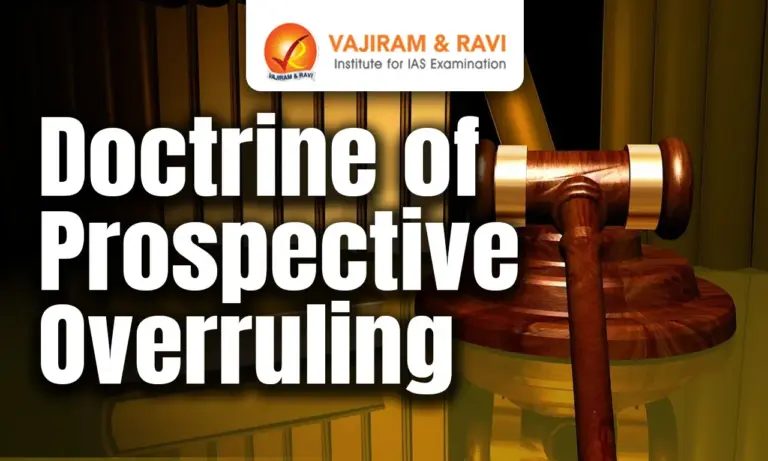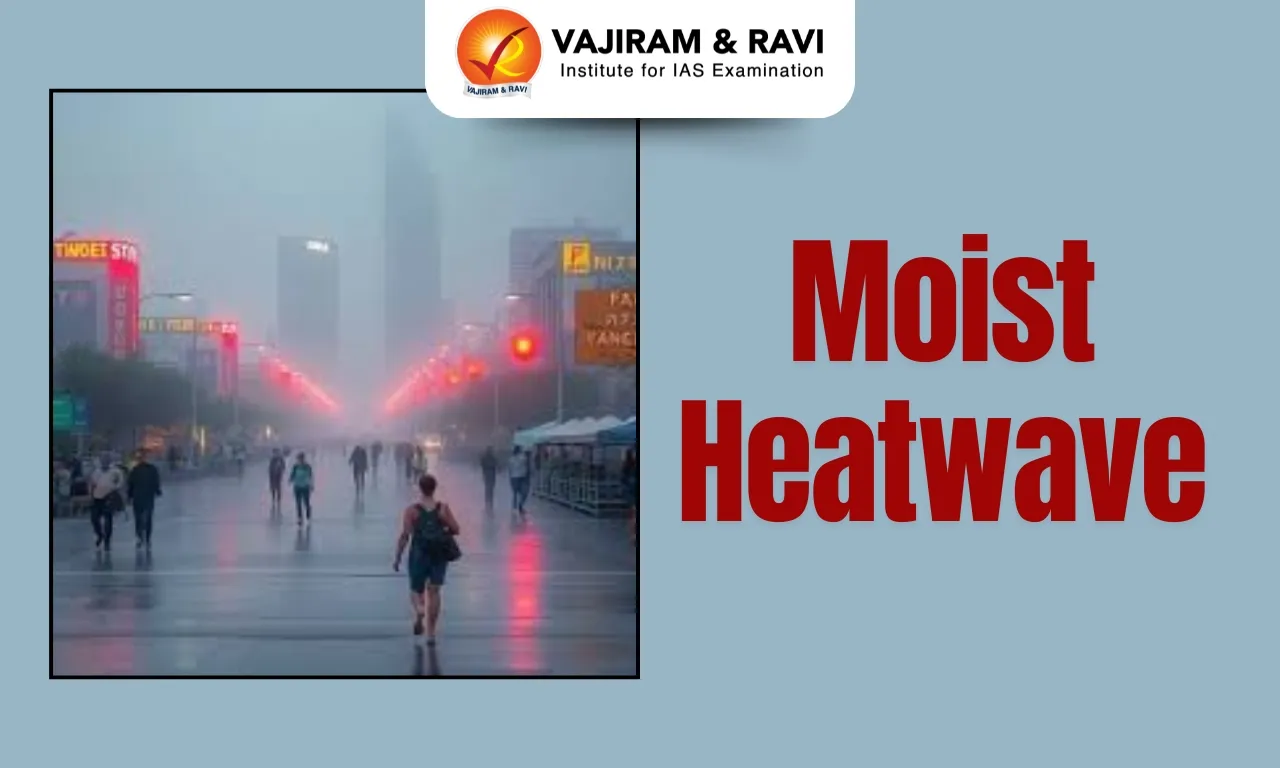Doctrine of Prospective Overruling Latest News
The Supreme Court in its recent Judgment, emphasised that the invocation of the Doctrine of Prospective Overruling or the Attribution of Prospectivity to a decision must not be resorted to in a routine manner without the Court satisfying itself that the circumstances demand such a solution.
About Doctrine of Prospective Overruling
- It allows courts to apply legal decisions only to future cases, without affecting past actions or judgements made under the old law.
- This doctrine ensures that individuals or entities who acted in reliance on a previous legal rule are not penalized when the law is reinterpreted or overruled.
- It contrasts with retrospective rulings, where the new interpretation of the law applies to both past and future cases.
- It is a deviation from the traditional Blackstonian view of law, viz., the duty of the Court was “not to pronounce a new rule but to maintain and expound the old one”.
- The doctrine was first recognized in American jurisprudence and has been adopted in countries like India and the UK.
- Its primary goal is to ensure fairness and avoid legal chaos by maintaining stability in past legal transactions while allowing the law to evolve.
- Indian Jurisprudence on the Doctrine of Prospective Overruling:
- The doctrine of prospective overruling was introduced into Indian jurisprudence by the Supreme Court in the landmark case of I.C. Golaknath vs. the State of Punjab (1967).
- This case marked a turning point in Indian constitutional law, as the Supreme Court explicitly recognised and applied the doctrine for the first time.
- The whole purpose of the doctrine is to avoid reopening settled issues and also prevent multiplicity of proceedings; in effect, this means that all actions prior to the declaration do not stand invalidated.
- All the subordinate courts are bound to apply the law to future cases only.
- There may also be instances where the Supreme Court may specify the date when the declaration shall come into effect, thereby not disturbing the decisions taken before such a date.
- All this happens during the process of invalidating a law or overruling a decision.
Source: VERDICTUM
Last updated on February, 2026
→ UPSC Notification 2026 is now out on the official website at upsconline.nic.in.
→ UPSC IFoS Notification 2026 is now out on the official website at upsconline.nic.in.
→ UPSC Calendar 2026 has been released.
→ UPSC Final Result 2025 is expected to be released in the first week of March 2026.
→ Check out the latest UPSC Syllabus 2026 here.
→ Join Vajiram & Ravi’s Interview Guidance Programme for expert help to crack your final UPSC stage.
→ UPSC Mains Result 2025 is now out.
→ UPSC Prelims 2026 will be conducted on 24th May, 2026 & UPSC Mains 2026 will be conducted on 21st August 2026.
→ The UPSC Selection Process is of 3 stages-Prelims, Mains and Interview.
→ Prepare effectively with Vajiram & Ravi’s UPSC Prelims Test Series 2026 featuring full-length mock tests, detailed solutions, and performance analysis.
→ Enroll in Vajiram & Ravi’s UPSC Mains Test Series 2026 for structured answer writing practice, expert evaluation, and exam-oriented feedback.
→ Join Vajiram & Ravi’s Best UPSC Mentorship Program for personalized guidance, strategy planning, and one-to-one support from experienced mentors.
→ Check UPSC Marksheet 2024 Here.
→ UPSC Toppers List 2024 is released now. Shakti Dubey is UPSC AIR 1 2024 Topper.
→ Also check Best UPSC Coaching in India
Doctrine of Prospective Overruling FAQs
Q1. What is the Doctrine of prospective overruling?+
Q2. In which landmark Indian case was the Doctrine of Prospective Overruling first introduced?+
Q3. Which legal tradition contrasts with the idea of prospective overruling?+
Tags: doctrine of prospective overruling prelims pointers upsc current affairs upsc prelims current affairs


















